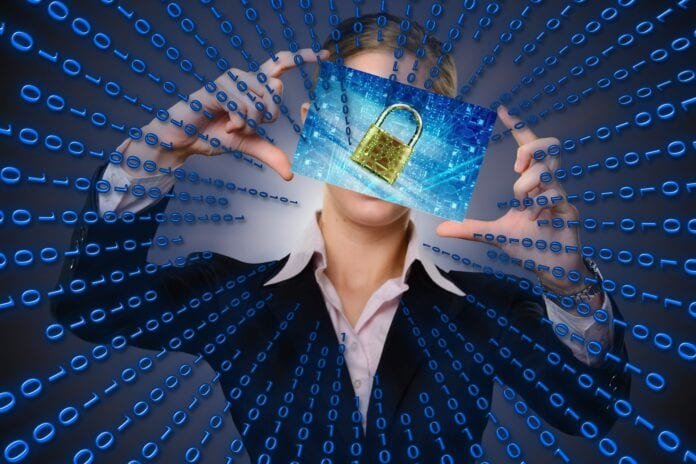Last Updated on February 13, 2025 by Bisma Sehar
If you’re familiar with Maslow’s hierarchy of needs, you know that safety is one of the most foundational needs in our lives. And if you think about the decisions you make in your day to day life – the route you travel to college or work, the amount of research you put into finding, the emergency contacts you’ve stored on your phone – you know that being safe and secure is quite important to you. And with the internet blurring the lines between the real world and the virtual one, it’s become imperative for our personal safety to extend to our online presence as well. In a world that’s increasingly comfortable with information sharing (think of some of your friends’ most TMI social media posts), keeping data private is a task that has to be at the front of our minds.
Here are some of our suggestions to help you better maintain data privacy and reduce the possibility of your personal information ending up in the wrong hands:
Table of Contents
Create strong passwords for your accounts
This one is pretty straight forward and almost goes without saying. When creating a password, think beyond words or numbers that a cybercriminal could easily figure out, like your birthday or birth year. Instead, opt for combinations of lower and upper-case letters, numbers, and symbols and, even better, change them periodically. Avoid using the same password across your accounts too. It’s always safer to have different passwords in case one of them is compromised. If you’re worried about remembering all of that information, a password manager tool can help you out. Just don’t write them down where other people can easily find them.
Avoid oversharing on social media
Think about it. We all have that one friend who posts way too many details of their life online. To put it bluntly, don’t be like them. Not only can this kind of oversharing be annoying, it can also put your personal information at risk. So rethink telling the world all about your holiday destination, sharing the pictures from your birthday party or advertising your board exam results. Hackers love this stuff, and the last thing you want is to play right into their hands. And considering how sites like Facebook are now admitting that employees and vendors had access to profiles, it’s even more important to not include as many details on your social media. Don’t forget to check your privacy settings so you are aware of who’s able to see your posts.
Don’t click on unverified links
Cybercriminals are a lot like spies – they’re sneaky. That’s why they compose their phishing scams to look like legitimate communications, usually from your bank, a corporate entity. How can you spot the difference then? Usually things like spelling errors or a different email address from the usual sender can be a clue that the email is spam. So just take a minute to pause and assess the situation before you react to an alarming email asking you for your data or to “click here.” You might save yourself from falling for the latest scam. And even while you’re browsing the internet, check to see if the sites you use are secure. The lock symbol at the top of your browser and URLs that begin with “https” are signs of website security.
Be careful with free Wi-Fi
We’ve all done it, especially at malls, airports or coffee shops. Connected to an open WiFi network for a little bit of online shopping. It couldn’t hurt, right? Wrong. Even though the temptation to surf the web might strike when you’re in public or traveling, you shouldn’t connect to unsecured Wi-Fi networks. The truth is that most free public Wi-Fi networks have very few security measures in place, which means others using the same network could easily access your data. And there’s always the risk that some of these so-called networks may not even be real. If you go to a public spot and see “Free Public Wi-Fi” show up on your phone, the unsecured wireless network may actually be from a nearby laptop or smartphone, attempting to steal personal information. So whenever possible, you should only connect to known, trusted SSIDs and authenticated access points. Use 4G data on your device when you can if you’re out and about, or even a Wi-Fi hotspot aggregator. Or practice patience and wait until you’re at home or on a secure, password-protected network before whipping out that credit card.
Get additional protection
When it comes to securing your data, there’s no such thing as being too cautious. So make sure you have installed an anti-virus software, anti-spyware software, and have a strong firewall. For additional protection, you may even want to consider cyber insurance, which can keep you and your family safe if you fall victim to a cyberattack.
Security should always be on your mind when online. Whether at a larger organizational level or at an individual level, you should always have at least some way to keep your data safe. That’s why it’s so important to have a reliable internet connection at your own place. After all, home is where the Wi-Fi connects automatically. Unfortunately, so many hostels and PGs that provide accommodation to students and young professionals like you miss the mark when it comes to providing internet services. So if you want to go the extra mile when it comes to data privacy, say goodbye to the old fashioned PG or hostel with their minimal provisions and opt for a professionally managed operator like Stanza Living instead. They understand the importance of being connected and safe at the same time – that’s why all their residences come with secure, industry-grade Wi-Fi facilities.
In fact, they want you to be safe in every way possible. So their spaces are equipped with state-of-the-art tech-enabled security systems, they maintain hygienic and sanitized facilities and their staff is trained for any emergencies. So, from your housing to your online presence, make the best choices and increase your personal security. Because that’s one thing you should always feel – safe and sound.
Apart from this, if you are interested to know more about Create a Good Online Cycling Routine in 2023 then visit our Technology category.
















